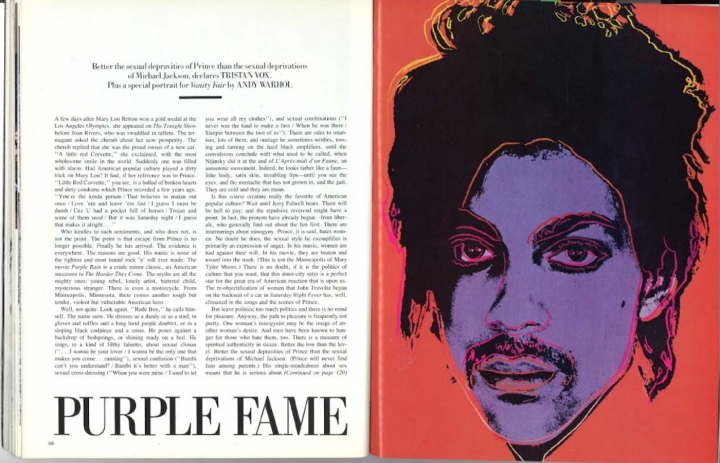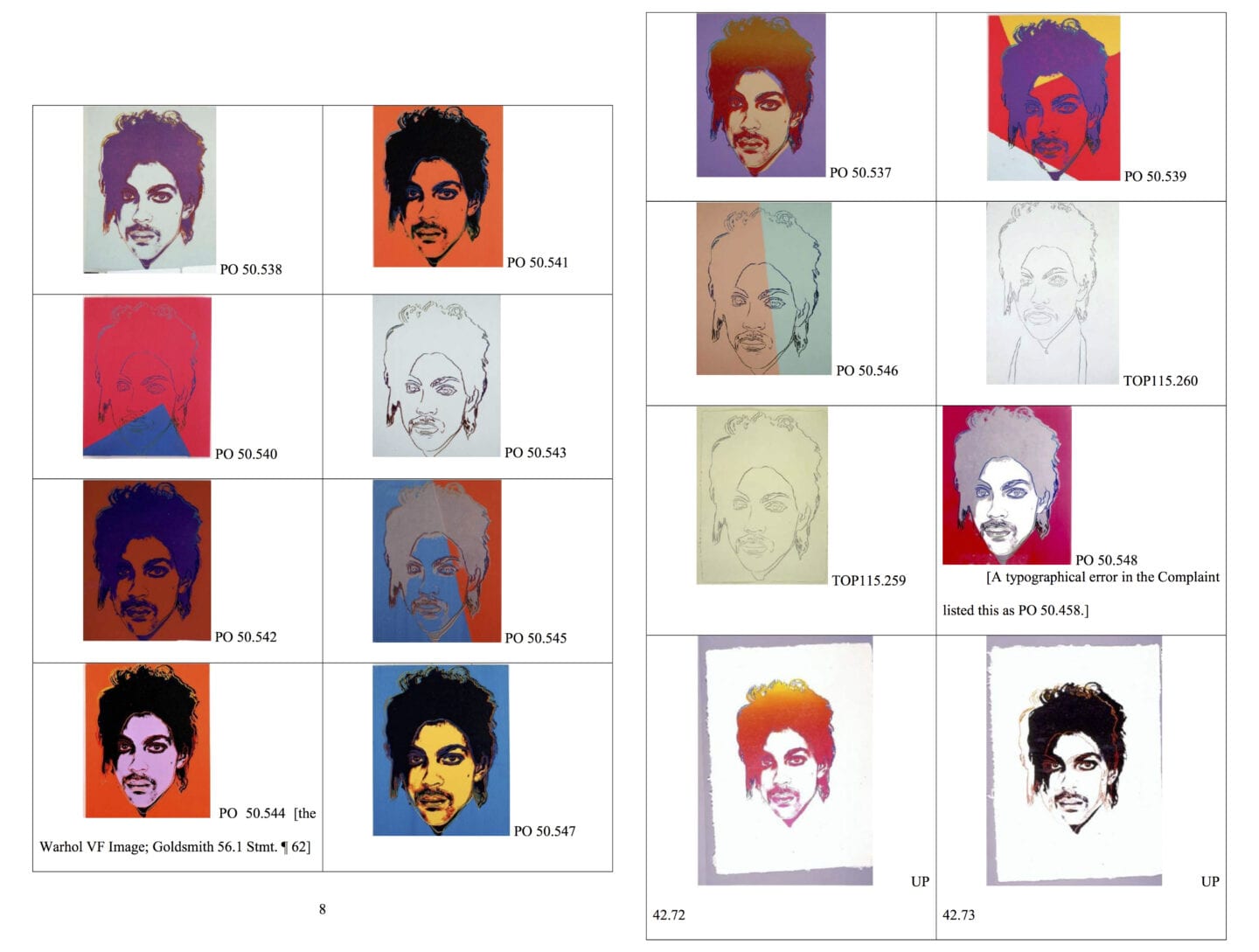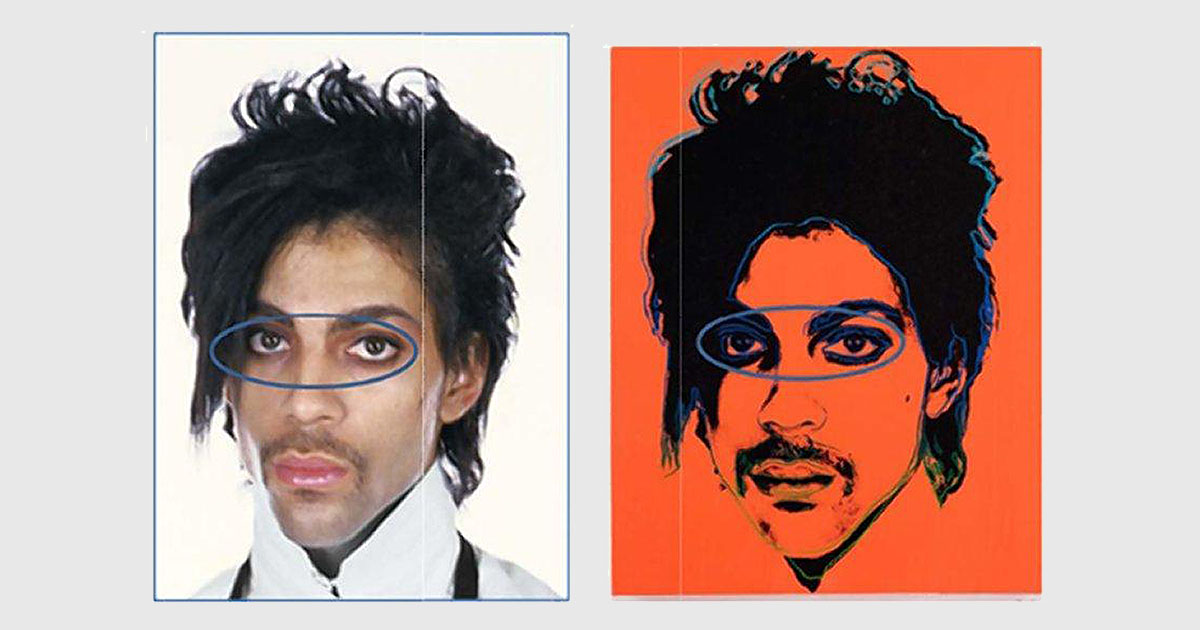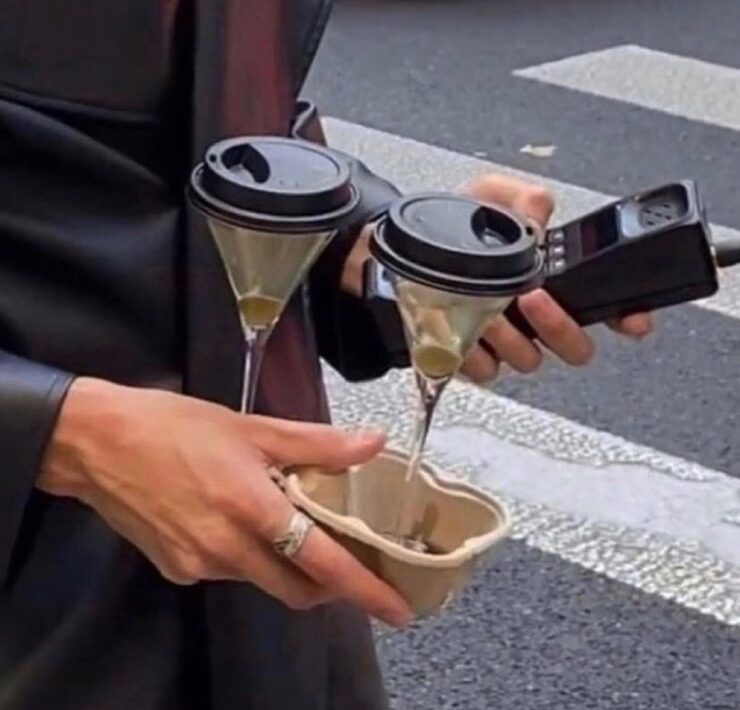Photographer Lynn Goldsmith Vows to Appeal Copyright Infringement Case Against Warhol Foundation

A judge has ruled that pop artist Andy Warhol did not breach the copyright of photographer Lynn Goldsmith, when reworking a portrait of Prince into a silkscreen print.
Imitation is the sincerest form of flattery – however, it often comes with a risk. Andy Warhol is seen by many as the leading exponent of the Pop Art movement, taking some of the most recognizable expressions of mass media culture and redefining them in the name of art. However, over the past two years, his screen prints of legendary pop star Prince, have faced a lawsuit for copyright infringement by celebrity photographer Lynn Goldsmith, who took the original portraits in 1981.
Over the past 50 years, Lynn Goldsmith has become one of the most renowned documentary and celebrity photographers, and is often cited as the first female rock n’ roll photographer. Famous for her portraits of rock stars and actors, her images have consistently appeared in publications such as Life, Rolling Stone, and The New Yorker.

In 1981, Newsweek approached Goldsmith to create a series of portraits of Prince at the height of his success. However, the images did not run and the article was later scrapped. Three years later Vanity Fair paid $400 to license the black-and-white photos from Goldsmith. Andy Warhol was subsequently given the image to create an illustration for an article on the pop star. Goldsmith claimed she did not know about the image until Vanity Fair reprinted the article in 2016, to commemorate the death of Prince.
Goldsmith was vocal about Warhol infringing on her copyright, but it was The Warhol Foundation that first sued Goldsmith, calling for a “declaratory judgement,” claiming the images were subject to fair use. When the case began, in April 2017, Goldsmith told interviewers: “The issue at stake in this matter concerns whether a copyright owner’s rights can be trampled on in the name of fine art.”

Many lawyers have cited the Copyright Act of 1976, which states that if the underlying work was transformed its considered “fair use.” Problems arise as what is considered transformative is subject to one’s own view. The severity of change is then up to the perspective of the judge, which leaves many subjective assumptions on the conditions of what constitutes fair use.

The judge claimed that Warhol sufficiently transformed Goldsmith’s photo into his own, stating that the silkscreen prints “[are clearly] recognizable as a ‘Warhol’ rather than as a photograph of Prince,” maintaining that the two images evokes separate emotions and that while Warhol’s image uses the head and neckline from Goldsmith’s photograph, he “removed nearly all the photograph’s protectible [sic] elements,” altering the color palette and mood of the image. Goldsmith’s images suggested a “vulnerable, uncomfortable person” whilst Warhol’s prints summoned “an iconic, larger-than-life figure.” This was a surprising comment by the judge, as response to art is subjective and individually stated.

The judge threw out the case put forth by Lynn Goldsmith, who responded that she will appeal the decision. Goldsmith’s lawyer has later stated that the system would always favor The Warhol Foundation because of the artist’s fame. Goldsmith’s lawyer claims the decision alludes to the bias against the rights of photographers in “favor of famous artists who affix their names to what would otherwise be a derivative work… and claim fair use by making simple cosmetic changes.”
The case is evident of historic and still ongoing tensions between documentary photographers and artists. As it was defined by the borrowing and ‘stealing’ of mass produced images, the Pop Art movement is a particularly contentious issue and Andy Warhol is not the first Pop Artist to undergo scrutiny. In 1976, photographer Morton Beebe sued Robert Rauschenberg for including one of his photographs in the 1974 print “Pull.” Rauschenberg ultimately settled in 1980, and Beebe received $3,000.
Despite the ruling, Goldsmith is determined to challenge the industry, asking photographers to “stand up along with me to say that your work cannot just be taken from you without your permission.”
Featured Image: Screenshot of photographer Lynn Goldsmith from interview with Nikon India.


